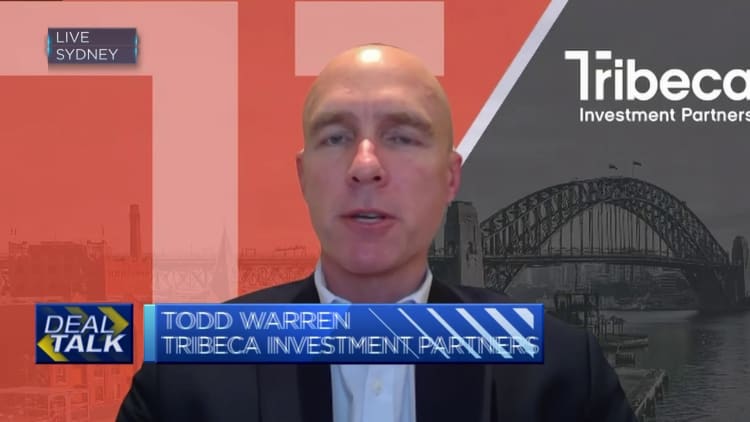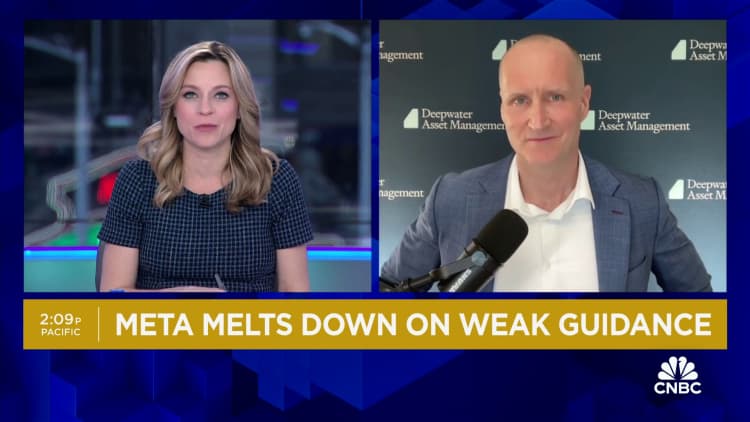Miners carrying out operations.
Graeme Williams | Gallo Images Roots Rf Collection | Getty Images
Mining giant BHP Group on Thursday said it had made an all-share takeover offer for rival Anglo American, valuing the smaller company at £31.1 billion ($38.9 billion).
Anglo American shares were 13% higher at 10:05 a.m. in London.
The company confirmed it had received an “unsolicited, non-binding and highly conditional combination proposal,” which it said it was reviewing with advisers.
Australia-based BHP, the biggest listed miner according to Companies Market Cap, said that the deal would deliver 0.7097 BHP shares per Anglo American share to Anglo American’s ordinary shareholders.
BHP said the combination would optimize Anglo American’s “assets and long-term growth potential” with its own “higher margin cash generative assets and growth projects along with its larger free cash flows and stronger balance sheet.”

A combination of the firms would form a juggernaut in copper mining and the world’s largest player in the space which would supply 10% of global output, according to a Reuters analysis. Anglo American has a huge copper operation based in South America and a production target for the metal of 730,000 to 790,000 tons in 2024. This compares with a copper output aim between 1.7 million and 1.9 million for BHP over the same period.
Mining firms are seeking to shore up copper supplies over the years ahead due to projected shortages and the metal’s key role in the energy transition, with uses in electric vehicles, power grids and wind turbines.
Copper appears to be “the main prize that BHP is fighting for” due to its perceived future growth potential, Todd Warren, portfolio manager at Tribeca Investment Partners, told CNBC’s “Street Signs Europe” on Thursday.
BHP in 2023 completed an acquisition of OZ Minerals, targeting its copper and nickel portfolio.
Chasing mega-mergers
The mining industry has experienced an uptick in merger and acquisition activity over the last four years as companies position themselves for changing demand patterns, though not on the scale of a potential BHP-Anglo deal.
Dan Coatsworth, investment analyst at AJ Bell, said the mining sector was now “reverting to old habits and chasing mega-mergers.”
“Anglo American was a sitting duck after the sharp decline in its share price last year,” Coatsworth said in emailed comments, noting the 39% decline in its market value last year due to operational setbacks, weaker commodity prices and downgraded production guidance,” he said in a Thursday note.
“That provided an opportunity for a larger rival to pounce on the business, taking a long-term view that its assets have considerable value and any short-term operational issues can be fixed,” he added, noting that BHP will have been particularly interested in exposure to “to large, low-cost and long-life assets” across iron ore, metallurgical coal, potash and copper.

Anglo American share price.
A deal would also increase BHP’s diamond sector exposure, given Anglo American’s 85% shareholding in famed miner and retailer De Beers.
BHP may look to demerge the business due to recent difficulties in diamonds from lower luxury goods demand and competition from lab-grown diamonds, Coatsworth flagged.
BHP has already said that its proposal is contingent on demergers by Anglo American to its shareholders of its stakes in South Africa-based Anglo American Platinum Limited and Kumba Iron Ore Limited.
Along with waning demand for diamonds, platinum has been described by some analysts as a less attractive long-term asset due to the shift away from combustion engines, in which it is used.
The mining industry has felt for some time that “diversity is king,” Tribeca’s Warren told CNBC.
“But the reality we’ve seen in the markets is that whilst diverse assets, depending on what those assets are, attract value and capital markets interest… those assets in particular are not valued as highly anymore. That creates the opportunistic timing of BHP’s bid,” Warren said.
BHP in 2022 merged its dual-floated business into a single legal entity with a primary listing in Australia.
Markets had closed before the announcement Thursday morning.
Credit: Source link











